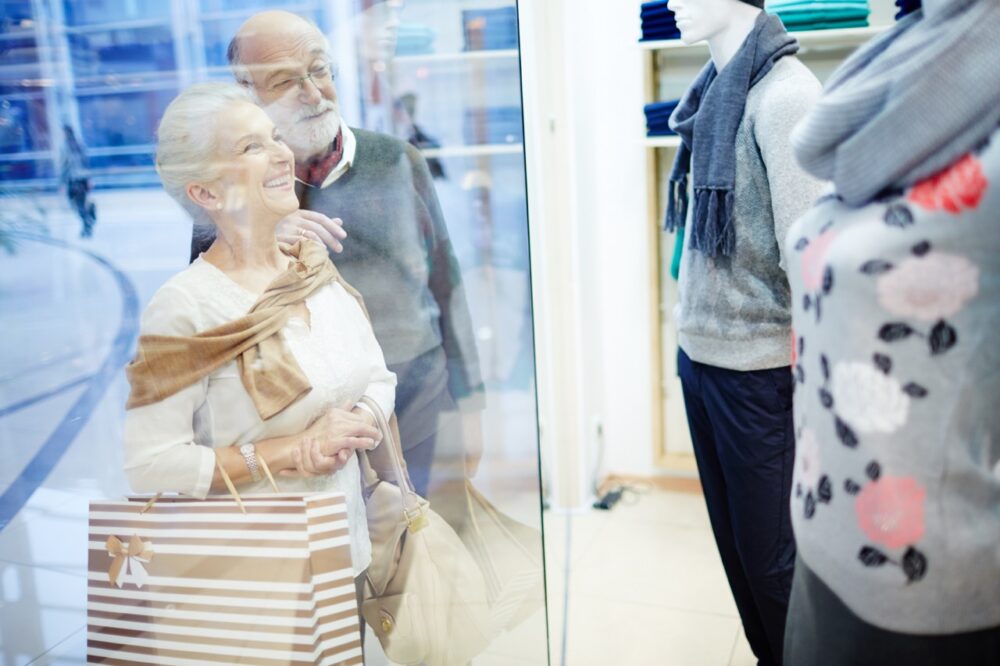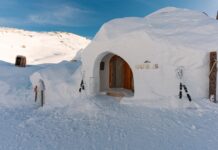Winter can be a magical time, however, for our elderly loved ones this season also brings heightened risks of slips and falls. If you’re concerned about the safety of your family members during these colder months, you’re not alone. Many caregivers and families are seeking ways to ensure their elderly relatives stay safe and maintain their independence during winter. In this blog post, we’ll explore practical strategies to help prevent slips and falls in winter while promoting mental well-being through independence.

The Risks of Winter Slips and Falls
Winter hazards like rain, ice and snow can transform everyday tasks into potential dangers for the elderly. The cold weather often leads to icy walkways and slippery surfaces, increasing the risk of falls. Understanding these risks is the first step in preventing them. Pay close attention to the areas outside your loved one’s home, especially pathways and driveways, as these spots are notorious for gathering ice, making them treacherous for those with reduced mobility.
You might notice that parking lots and even indoor surfaces can become slippery due to tracked-in snow and ice, so make sure to encourage your loved one to wear non-slip shoes designed for winter conditions. Additionally, keep an eye on the weather forecast and plan outings during times when conditions are more favourable.
Don’t forget about indoor risks. Heating systems can cause condensation, leading to wet floors. Make sure any rugs have non-slip backing and that spills are promptly cleaned. These small preventative measures can significantly reduce the risk of indoor falls, helping maintain a safe environment.
The Importance of Independence for Mental Wellbeing
As you focus on keeping your loved ones safe, it’s equally important to consider their mental well-being. Independence plays a crucial role in maintaining a positive mental state. Feeling autonomous and capable can improve self-esteem and overall happiness. While it’s tempting to do everything for them, finding a balance that allows them some independence can be beneficial.
Involve your loved one in decision-making processes about their safety. This empowers them and gives them a sense of control. Discuss possible modifications to their living environment and ask for their input. Simple changes, like rearranging furniture for easier navigation or installing grab bars, can make a big difference in safety without compromising independence.
Promote activities that allow them to stay active and engaged. Encourage safe outdoor walks using mobility aids or consider indoor exercises tailored to their abilities. Staying physically active not only helps prevent falls but also boosts mood and cognitive function. By supporting their independence, you’re contributing to their overall well-being.
Mobility Aids
Mobility aids can be invaluable in ensuring safety during winter. Devices like wheelchairs and mobility scooters offer stability and support, helping your loved ones move more confidently. If your family member has difficulty walking, consider discussing mobility aids with their healthcare provider to determine what would best suit their needs.
When choosing a mobility aid, consider factors such as terrain and lifestyle. For instance, if your loved one enjoys spending time outdoors, a mobility scooter equipped for rougher terrains might be a suitable choice. Wheelchairs with robust wheels can also provide better traction on uneven surfaces.
Ensure that your loved one receives proper training on how to use their mobility aid safely. This includes understanding how to manoeuvre slopes and handle icy conditions.
Dressing for Safety and Warmth
Proper attire plays a significant role in preventing slips and falls, especially during winter. Encourage your loved one to dress in layers to stay warm without feeling bulky or restricted. Layered clothing provides insulation and can be adjusted as needed.
Footwear is another critical aspect. Encourage shoes with non-slip soles and ankle support, and avoid footwear with smooth surfaces, as they can easily slip on ice. For additional safety, consider investing in slip-on ice grips that fit over shoes, providing extra traction.
Accessories like hats, gloves, and scarves are essential for warmth, but choose items that don’t obstruct vision or hearing. Ensuring clear visibility and awareness of surroundings is key to preventing accidents. Properly dressed, your loved one will feel more confident navigating winter conditions.
Encouraging Social Engagement
Winter isolation can impact mental health, so encourage social engagement for your loved one. Help them stay connected with friends and family through phone calls, video chats, or safe in-person visits. Social interaction enhances mood and reduces feelings of loneliness.
Consider organising activities that bring them joy, such as book clubs, crafting sessions, or virtual classes. Encourage them to participate in local senior groups or community centres for additional opportunities to socialise.
Transportation options are important, so explore services that offer rides for seniors. Keeping your loved one engaged and connected contributes positively to their overall well-being.
Nutrition for Strength and Balance
A balanced diet is essential for maintaining strength and balance, particularly in winter. Encourage your loved one to consume nutrient-rich foods that support bone health and muscle strength. Foods high in calcium and vitamin D, such as dairy products, leafy greens, and fortified cereals, are beneficial.
Protein is crucial for muscle maintenance, so include sources like lean meats, beans, and nuts in their meals. Adequate hydration is also essential, even in colder months. Dehydration can affect cognition and physical function, so remind them to drink water regularly.
Consider consulting a nutritionist to create meal plans tailored to their specific dietary needs. Proper nutrition supports physical health, reduces the risk of falls, and enhances their overall quality of life.
Summary
Helping to prevent slips and falls for your elderly loved ones during winter requires a thoughtful approach that balances safety with independence. To begin, it’s important to understand the risks and implement practical strategies to ensure their physical and mental well-being.
By incorporating mobility aids and focusing on nutrition, you’re creating a safer environment for your loved one. Additionally, encouraging social engagement and staying informed about their health needs further contribute to their overall quality of life.
If you’re interested in learning more about fall prevention and elderly care, reach out to local support groups or healthcare professionals. Together, you can make this winter a season of joy and independence for your beloved family members.
















